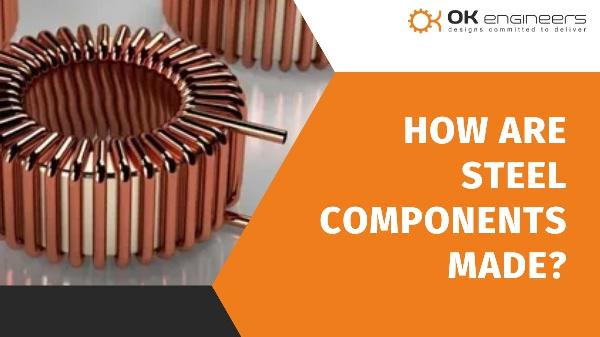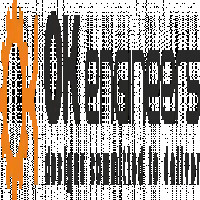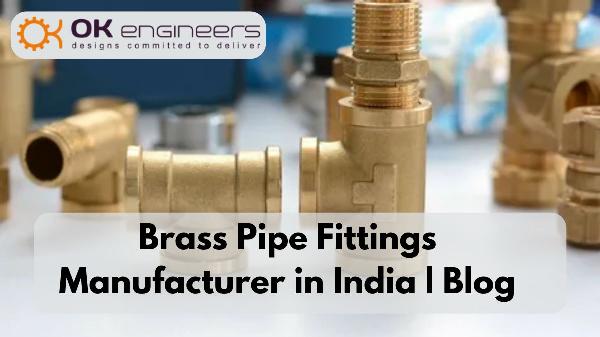How Are Steel Components Made? By OK Engineers

Strong 8k brings an ultra-HD IPTV experience to your living room and your pocket.
Steel Components play a crucial role in numerous industries, thanks to their remarkable properties and versatility. From structural frameworks in construction to precision parts in automotive engineering, the production of steel components involves intricate processes that ensure durability, strength, and reliability.
Steel Composition Percentage and Properties
Steel, primarily an alloy of iron and carbon, incorporates various other elements to achieve specific properties. The composition percentages of these elements, such as carbon, manganese, nickel, and chromium, vary depending on the desired characteristics of the steel. For instance, high-carbon steel enhances hardness and wear resistance, while adding chromium improves corrosion resistance, crucial for components exposed to harsh environments.
Steel Components Names and Uses
The diversity of steel components reflects its adaptability across industries. From simple bolts and nuts to complex gears and shafts, each component serves a unique purpose dictated by its design and material properties. Steel's robustness makes it ideal for load-bearing structures in buildings, machinery parts in manufacturing, and surgical instruments in medical fields, showcasing its broad applicability and reliability.
The Manufacturing Process
Raw Material Preparation: Steel production begins with raw materials such as iron ore, coal, and limestone. These are refined into molten iron in a blast furnace, where impurities are removed to achieve the desired iron content.
Steelmaking: The molten iron undergoes further refinement in a basic oxygen furnace or electric arc furnace. Alloying elements are added at this stage to achieve the desired steel grade and properties.
Casting: Once the steel is refined, it is cast into semi-finished forms such as billets, blooms, or slabs. These forms are then processed further based on the intended final product.
Forming: Forming processes such as rolling, forging, or extrusion shape the steel into its final component form. Each method offers unique advantages in terms of precision, strength, and cost-efficiency.
Heat Treatment: Heat treatment processes like annealing, quenching, and tempering are crucial to adjust the steel's hardness, toughness, and other mechanical properties to meet specific requirements.
Surface Treatment: Surface treatments such as plating, painting, or coating protect steel components from corrosion, enhance aesthetics, or improve wear resistance, depending on the application.
Unique Characteristics of Steel
Steel's properties make it indispensable in various applications:
Strength: High tensile strength and durability make steel components capable of withstanding heavy loads and impacts.
Versatility: Steel can be manipulated into different shapes and sizes, making it adaptable to diverse manufacturing requirements.
Durability: Resistant to corrosion, rust, and wear, steel components have a long service life even in challenging environments.
Applications Across Industries
Automotive: Steel forms the backbone of vehicle frames, engine parts, and structural components due to its strength and crash resistance.
Construction: From skyscrapers to bridges, steel provides the structural integrity and flexibility needed for large-scale construction projects.
Machinery: Steel gears, bearings, and shafts ensure the smooth operation and reliability of industrial machinery.
Medical: Surgical instruments and implants made from stainless steel offer sterilizability, strength, and biocompatibility.
Conclusion
In conclusion, the production of steel components by OK Engineers involves a meticulous process of material selection, refining, shaping, and treating to achieve the desired properties and functionality. Whether in infrastructure, manufacturing, or healthcare, steel continues to be a cornerstone material due to its unmatched combination of strength, durability, and versatility.
By understanding the intricacies of steel composition, properties, and manufacturing techniques, OK Engineers ensures that each steel component meets the highest standards of quality and performance demanded by modern industries.
Note: IndiBlogHub features both user-submitted and editorial content. We do not verify third-party contributions. Read our Disclaimer and Privacy Policyfor details.




